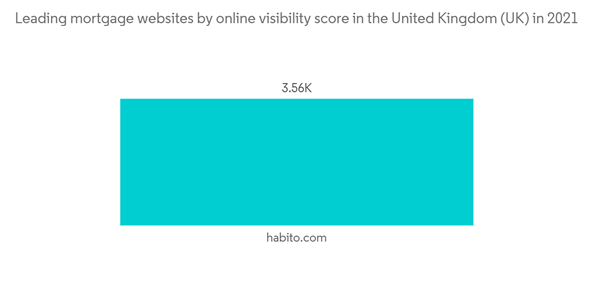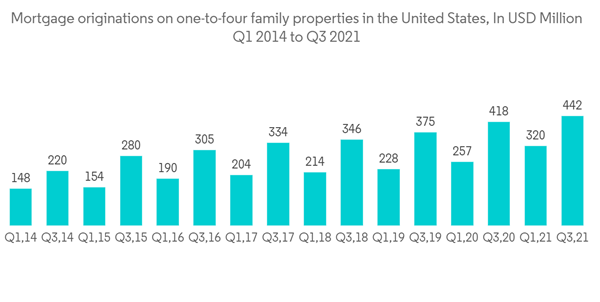A mortgage/loan broker is a specialist who serves as a point of contact between lenders who authorize loans and companies looking to borrow money. Brokers search for the finest financial rates and terms whether their customer wants to fund a loan or launch a new business. They bargain with lenders to secure loan approval or look into other options. A bank loan officer offers mortgage rates and programs from just one company. In contrast, a mortgage broker works on behalf of a borrower to locate the best lending programs and/or lowest rates offered by several lenders.
The Covid-19 epidemic had a detrimental effect on the expansion of the global loan brokers' business since fewer consumers were seeking loans during the COVID era, which caused many loan brokers to suffer significant losses. The impact of the COVID-19 epidemic explores how governments and major institutions are handling the issue and recuperating, as well as the immediate repercussions and ongoing difficulties lenders are facing. Institutions' actions can be categorized into one of three broad categories: preparing for recovery, controlling and stabilizing business risk, and responding to volume influxes.
Mortgage/Loan Brokers Market Trends
Digitization is changing the future of Mortgage
The ability for all parties to close on mortgages virtually, which enhances the consumer experience and returns on investment for lenders, is transforming the mortgage sector.In the expanding housing market of today, mortgages are booming. Mortgage originations in the US housing market hit a record USD 4.4 trillion in 2021. That's a remarkable accomplishment, and 2022 appears to be a significant year for mortgage sales as well. There are other factors at play in the mortgage industry as well. Lenders are now paying attention as the mortgage process is significantly impacted by digital change. Beginning in March 2020, consumers' interactions with companies and one another will drastically change. The use of digital channels significantly increased after the pandemic. The epidemic accelerated the uptake of digital technologies by several years.
Customers were compelled to conduct business digitally because of online banking, remote employment, and online communication. The mortgage business was affected by this significant shift to digital, which marked the beginning of a digital transformation that isn't about to slow down. Several elements contribute to the rise in demand for an online mortgage procedure, in addition to the advantages that digital processes offer. The first is that the majority of people buying new homes now are millennials. These customers prefer a digital experience for everything from house searches to mortgage closings because they grew up with smartphones and laptops. Lenders must keep in mind that younger generations of consumers are more technologically aware than older generations of customers even if every generation has increased its use of digital platforms.
Growth In The Housing Market Leads The Demand For Mortgage Brokers
It is a good moment to consider the achievements that the wholesale channel accomplished throughout 2020 despite the significant challenges provided by the digital revolution and the economic volatility brought on by the COVID-19 epidemic as the mortgage market climate changes. The housing market is still booming, but because of the high demand and short supply, every loan faces stiff competition. This is where the dynamic flexibility of the broker is useful. Due to the relationship-based customer services, variety of loan options, and technology resources they offer, the broker channel is well-positioned to succeed in the future and keep expanding its market share.Being successful as a mortgage broker is difficult, but it's a goal worth pursuing. Brokers must constantly be able to respond to client concerns and be prepared to put the needs of the customer first, but they must also push the envelope because the competition is fierce. They must set up reliable procedures and processes, but they must also continue to grow and innovate. In other words, a combination of various different qualities will surely contribute to their success as a broker. These include the use of technology, interactions with the market and clients, as well as an openness to learning and development.
Mortgage/Loan Brokers Market Competitor Analysis
The main foreign competitors in the US mortgage/loan broker business are covered in the research. Loan brokers face intense competition since they depend on their relationships with the best real estate agents and lenders in the communities they cover. The following list includes some of the key market participants.Additional Benefits:
- The market estimate (ME) sheet in Excel format
- 3 months of analyst support
Table of Contents
Companies Mentioned (Partial List)
A selection of companies mentioned in this report includes, but is not limited to:
- Bank of America
- Royal Bank of Canada
- BNP Paribas
- Truist Financial Corporation
- Mitsubishi UFJ Financial Group
- PT Bank Central Asia Tbk
- Qatar National Bank
- Standard Chartered PLC
- China Zheshang Bank
- Federal National Mortgage Association (FNMA)










